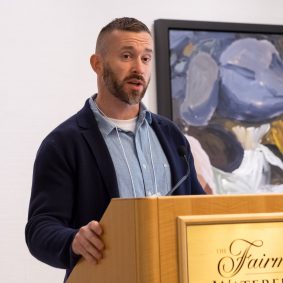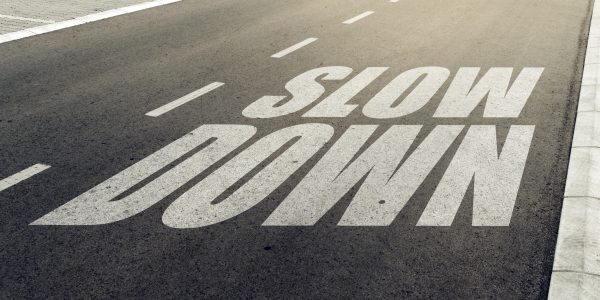Slow down, you drive too fast, you’ve got to make your lifetime last, says MHO
Do people drive too fast along neighbourhood streets? Dr. Mark Lysyshyn, Medical Health Officer, North Shore Sea to Sky, thinks so. He’s pushing to have speed limits reduced to 30 kilometres an hour on the North Shore.
He’s developed a policy called Slow Down North Shore that garnered a good deal of media attention this week. Below is a North Shore News article featuring an interview with Mark on the topic. He is also speaking at a Slow Down North Shore Forum tonight at the District of North Vancouver council chambers.
By Brent Richter – North Shore News
Time to slow down. Doctor’s orders.
The North Shore’s medical health officer is pushing for a drop in the speed limit to 30 kilometres per hour on neighbourhood streets in the name of public health.
Dr. Mark Lysyshyn is the keynote speaker at the Slow Down North Shore Forum scheduled for Thursday, Jan. 26 at District of North Vancouver council chambers.
“Motor vehicle crashes are an important public health issue. They’re a source of morbidity and mortality in our community,” Lysyshyn said.
But while the number of injuries and fatalities for drivers and passengers has gone down over the last 20 years, largely thanks to improvements in roads and vehicles, the number of fatalities and hospitalizations of pedestrians and cyclists has stayed steady. The contrast is noted even more sharply in the Lower Mainland, Lysyshyn said.
“If you just look at walkers and bikers they represent about 50 per cent of the fatalities in this region,” he said. “We’re trying to encourage people to use active forms of transportation but as a society, we’re not really doing much to protect people using those modes.”
Studies have found that the perception of safety is one of the top determinants of whether people will choose to walk or bike, and that the speed of vehicle traffic is a major disincentive.
And, Lysyshyn said, more than encouraging more people to get out and walk their neighbourhood streets, a lowered speed limit would save lives.

Dr. Mark Lysyshyn, Medical Health Officer, North Shore Sea to Sky
“When pedestrians get hit at 30 km/h, they have a 90 per cent chance of surviving, whereas when they get hit at 50 km/h, they only have a 50 per cent chance of surviving.”
Lysyshyn is lobbying the municipalities to join the Vision Zero movement, which aims to reduce the number of traffic fatalities and injuries to zero through better street design.
“It’s just never acceptable to kill people to get places a little bit faster,” he said.
The event is being organized by the North Shore Safety Council, a group that’s lobbied for safety measures on the North Shore since it was founded in 1954 by then-North Vancouver secondary principal Mickey McDougall.
The event is aimed not just at lobbying local governments, but changing the way we think about transportation, said Tom Walker, safety council president.
“Legislative changes are absolutely necessary. Engineering and planning changes are absolutely necessary. Attitudes and awareness changes are absolutely necessary,” he said.
The group has made many presentations to students and parents in hopes of encouraging more families to pick up the healthy habit of walking or biking to school, which has fallen out of favour with parents, largely out of concern for their kids’ safety.
“The irony is that many of the people driving too fast are people who are driving their kids to school,” said Walker. “It’s a chicken and egg situation.”
Following Lysyshyn’s keynote, there will be a panel discussion featuring West Vancouver police and North Vancouver RCMP, elected council members from all three North Shore municipalities, HASTEe BC, HUB, and ICBC for questions and comments from the audience.
The event’s limited seats are already about half booked, largely by supporters, Walker said, but he’d like to see some skeptics come, listen, raise concerns, and maybe be persuaded.
And to those skeptics whose chief complaint about transportation is traffic, Walker has some advice: “Plan ahead. Consolidate your trips. Carpool. Take transit. Walk.
Ride your bike. Think ahead and be smart about how you’re getting from A to B. This isn’t rocket science.
“How are we going to make it easier to get around? Make it easier to get around,” he said.
To register to attend Thursday’s forum, visit eventbrite.com and search “Slow Down North Shore.” The event starts at 6:30 p.m.
Mark was also featured in a Global News report.
(Reprinted with permission from the North Shore News)

